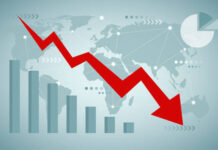
Bangladesh should take long-term plans to establish large scale plastic recycling and organic waste composting systems to cope with future waste pressures, according to a new study revealed today.
The solid wastes generated in Bangladesh consists mostly of organic wastes with low calorific values, according to the study on “Current Scenario of Circular Economy in Bangladesh: Problems and Prospects.”
Mohammad Sujauddin, assistant professor of the Department of Environmental Science and Management of North South University, presented the keynote paper on the study at a seminar organised by the Federation of Bangladesh Chambers of Commerce and Industry (FBCCI) in Dhaka.
The Bangladesh Economic Zones Authority (BEZA) can result in achieving a circular economy if the government can enforce strict policy implications mainly characterised by command and control into the input, processing and output for each industry included in the zone, he said.
Naser Ezaz Bijoy, president of the Foreign Investors’ Chamber of Commerce and Industry (FICCI), said a circular economy ensures the security of raw materials and jobs creation.
Md Jashim Uddin, president of the FBCCI, said the per capita consumption of plastic in Bangladesh is seven to eight kg but in the USA and Japan, the per-capita plastic consumption is more than 100 kg as they could manage the plastic waste well.
He said by 2035, the amount of e-waste will reach 4.62 million tonnes in Bangladesh in a year.
Industries Minister Nurul Majid Mahmud Humayun said he will form a separate cell in his ministry for managing the waste for the circular economy.


 For all latest news, follow The Daily Star’s Google News channel.
For all latest news, follow The Daily Star’s Google News channel.







